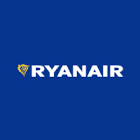Ryanair Holdings plc

Estimated electricity consumption
N/A
Countries of production presence
N/A
Ryanair Holdings PLC is an Irish low-cost airline that was founded in 1984. The company has grown to become one of the largest airlines in Europe, operating over 2,000 flights daily to more than 200 destinations across 40 countries. Ryanair is known for its no-frills approach to air travel, offering affordable fares and a range of ancillary services to its customers.
In recent years, Ryanair has made a concerted effort to reduce its carbon footprint and become more sustainable. The company has set a target to reduce its CO2 emissions per passenger-kilometre by 10% by 2030, and to become carbon neutral by 2050. To achieve these goals, Ryanair has implemented a number of initiatives focused on decarbonisation and renewable energy.
One of the key areas of focus for Ryanair is corporate energy. The company has implemented a number of measures to reduce its energy consumption and increase efficiency. For example, Ryanair has invested in more fuel-efficient aircraft, which consume less fuel and emit fewer greenhouse gases. The company has also implemented a range of energy-saving measures across its operations, such as LED lighting, energy-efficient heating and cooling systems, and smart building controls.
In addition to reducing its energy consumption, Ryanair is also actively pursuing renewable energy sources. The company has signed a number of corporate power purchase agreements (PPAs) with renewable energy providers, which allow it to purchase renewable energy at a fixed price over a set period of time. These agreements provide Ryanair with a stable and predictable source of renewable energy, while also supporting the growth of the renewable energy sector.
Ryanair has also invested in its own renewable energy infrastructure. In 2019, the company announced plans to build a solar farm at its Dublin Airport base, which will generate up to 10% of the airport's electricity needs. The solar farm will consist of over 20,000 solar panels and will be one of the largest in Ireland.
Another area of focus for Ryanair is decarbonisation. The company has set a target to reduce its carbon emissions by 10% per passenger-kilometre by 2030. To achieve this goal, Ryanair is investing in a range of decarbonisation measures, such as sustainable aviation fuels (SAFs) and carbon offsetting.
Ryanair has been a vocal supporter of SAFs, which are fuels made from renewable sources such as waste biomass and used cooking oil. SAFs have the potential to significantly reduce the carbon emissions of the aviation industry, and Ryanair has committed to using 12.5% SAFs by 2030. The company has also called on governments and the European Union to provide more support for the development and production of SAFs.
In addition to SAFs, Ryanair is also investing in carbon offsetting. The company has partnered with a number of carbon offset providers to offer its customers the option to offset the carbon emissions of their flights. Ryanair has also committed to offsetting all of its own carbon emissions from 2019 onwards.
Overall, Ryanair Holdings PLC is a company that is committed to reducing its carbon footprint and becoming more sustainable. The company has implemented a range of initiatives focused on decarbonisation, corporate energy, corporate PPAs, and renewable energy, and has set ambitious targets to become carbon neutral by 2050. As one of the largest airlines in Europe, Ryanair has the potential to make a significant impact on the aviation industry's carbon emissions, and its efforts to become more sustainable are to be commended.